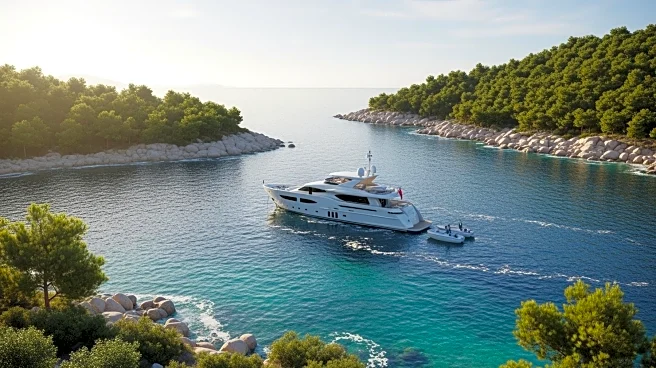What's Happening?
The North Sea tourism sector is experiencing a significant downturn, as highlighted by the North Sea Tourism Report 2025 (NTR25). The report indicates a 13.2% decrease in holiday potential from 2022 to 2025,
with further declines expected in 2026. This trend is attributed to changing travel desires post-pandemic and economic pressures such as inflation. The decline is not isolated to Germany but is also affecting Danish and Dutch North Sea regions, as well as the German Baltic coast. The report suggests that the traditional model of mass tourism is becoming less viable, with a shift needed towards more luxurious and tranquil experiences to attract visitors.
Why It's Important?
The decline in North Sea tourism has significant implications for the regional economy, which relies heavily on tourism revenue. The shift away from mass tourism towards luxury and eco-friendly experiences could redefine the industry, potentially attracting a different demographic of travelers. Wealthy travelers seeking exclusive experiences and families interested in eco-friendly adventures are identified as key groups that could drive recovery. This shift could lead to increased investment in high-end amenities and sustainable tourism infrastructure, potentially revitalizing the sector and providing a model for other regions facing similar challenges.
What's Next?
To address the decline, the NTR25 report recommends strategic changes, including enhancing digital expertise to attract wellness travelers, improving infrastructure for family-friendly green spaces, and using data-driven personalization to appeal to luxury customers. These measures aim to balance high-end offerings with affordable family options, potentially restoring stability to the North Sea tourism sector. As the industry adapts to these changes, stakeholders will need to collaborate to ensure long-term sustainability and competitiveness against other popular destinations.
Beyond the Headlines
The shift towards luxury and eco-friendly tourism in the North Sea region reflects broader trends in the travel industry, where personalization and sustainability are becoming increasingly important. This transformation could lead to a more resilient tourism model that prioritizes quality over quantity, potentially setting a precedent for other regions. However, the success of these initiatives will depend on the ability of tourism businesses to adapt to changing consumer preferences and economic conditions.










